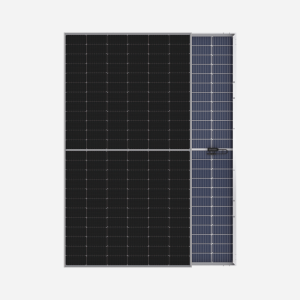Comprehensive Guide on Rooftop Solar Panels for Homes 2025
Due to the increase of energy prices and the rise of environmental issues, more and more people are opting for rooftop solar panels as an ideal option. Such systems provide a good solution in terms of costs and offer renewable energy sources which lessen the reliance on fossil fuels. With schemes such as the PM Surya Ghar Yojana and the National Portal for Rooftop Solar, making a shift toward solar electricity has never been easier or more cost-effective.
This guide will help you understand how you can benefit from rooftop solar panels, how much they will cost you and how easily you will be able to install them.
1. What Are Rooftop Solar Panels?
A rooftop solar panel is defined as a structure that generates solar energy, more accurately, a solar energy system that has been built onto the roof of an individual house or a commercial building. Such as panels receive the sun’s rays and convert them into energy which can then be utilized for daily activities. They represent a viable alternative to conventional power technologies and their use grows, both in households and in business.
2. Why Choose Rooftop Solar Panels?
There is hardly any reason not to switch to rooftop solar as it offers abundant advantages:
Cut down on Electricity Bills: Save a huge chunk of your electricity expenses.
Use Renewable Energy Sources: Need not worry about climate change as you will be using clean energy.
Government Schemes: Get subsidies and tax rebates under schemes such as PM Surya Ghar Yojana.
Uninterrupted Power Supply: Reduce dependence on grid electricity and get a steady supply of electricity.
Moreover, solar rooftops also boost the property value and protect them against fluctuations in energy prices.
3. What Are the Costs of Rooftop Solar Panels?
The cost of a rooftop solar system varies in size, technology, and installation. For instance:
The 3kW solar rooftop system shall cost about ₹1.5 – ₹2.5 constituting huge subsidies.
A good solar rooftops’ calculator should help in knowing the average installation costs and future benefits.
The domination by larger systems tend to bring down the cost per watt for many large size systems.
And, always be informed and cautious that most prices are subject to market conditions including the panel types used or the installation site and even scope.You can government approved DCR solar panels like Jakson and Goldi Solar.
Solar Rooftop Cost and Subsidy
PM Surya Ghar Yojana offers onsite installation subsidies in addition to other schemes which have made it considerably economical to mount such systems for residential use.
Solar Rooftop Calculator
The Rooftop Solar Calculator available on the National Portal for Rooftop Solar allows users to analyze the projected installation costs along with savings.
4. Support of the Government for Rooftop Solar
The Ministry of Renewable Energy of India has rolled out several measures aimed at encouraging users to adopt rooftop solar:
PM Surya Ghar Yojana: Manages funding to people who are willing to install solar panels on their structures.
National Portal for Solar Rooftop: Makes the subsidy application as well as monitoring of the installations achievable.
Free Solar Panel Scheme: Several states provide free solar panels to qualifying persons under state-sponsored programs.
For registration, the solar rooftop online application available on the government website can be used and the verification process completed.
5. Getting Started With Rooftop Solar Panels: A Step-by-Step Guide
Appraisal of Your Requirements: Establish the size of the system in accordance with the amount of your energy use.
Verification of Conformity: Check on the National Portal for Rooftop Solar to find out more about other subsidy schemes.
Make Payment: Access the NPP and submit your application for approval.
Select the Preferred Provider: Obtain estimates from verified solar companies like PowernSun.
Installation and Monitoring: Afterwards, track your energy production and the amount of energy savings in real time over the internet.
6. Approximately 3 different types of solar systems based on their connectivity and configuration
Grid-Connected Systems: Most applicable for cities where electricity supply is consistent.
Off-Grid Systems: Most useful for places that do not have any grid access.
Hybrid Systems: These systems offer the owners the best of both worlds by including a backup battery system.
Every type has its good merits, and the decision will solely depend on what your needs are.
7. Benefits of using Solar Panels on rooftops
There are several advantages to equipping a rooftop with solar panels, such as:
Reduced Electricity Bills: Produce your energy and cut down on costs.
Energy Security: Protect yourself against rising electricity costs.
Low Maintenance: Solar panels generally have a long life and are easily maintained.
These benefits make solar energy on rooftops an advantageous investment for both homeowners and businesses.
9. Future of Rooftop Solar in India
India has big plans for solar system installation in the country as they have set high goals for renewable energy. Active programmes like PM Surya Ghar Yojana and technology innovations are aiding this. By 2030, solar is expected to be mainstream in India and rooftop solar is to be substantial in India’s energy composition.
Conclusion
Touted as the future of energy consumption, rooftop solar panels are revolutionizing the energy landscape in India. With advantages such as affordability, environmentally friendly, and support from the government, the time to hesitate for converting to solar energy is over. Employ solar power applications including the solar rooftop calculator, sign up for policies through the National Solar Rooftop Portal, and begin the process towards a more sustainable tomorrow.




